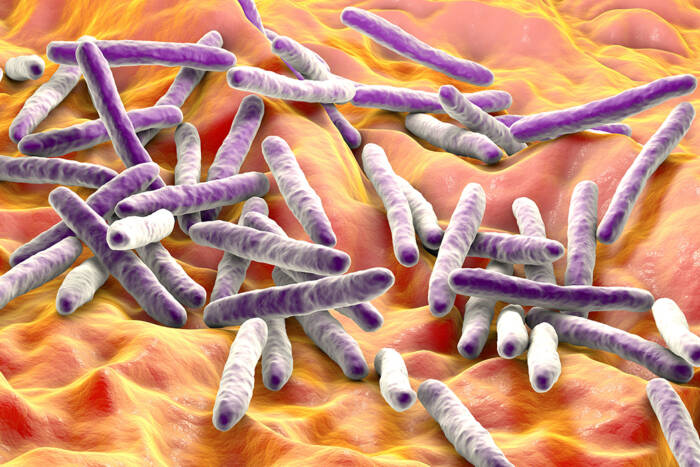Newly Identified Protein Caps Chromosomes Ends
A newly isolated protein is a vital part of human telomeres, the shields that guard the ends of chromosomes against damage and destruction. Scientists at Rockefeller University and Memorial Sloan-Kettering Cancer Center report their identification and cloning of the protein in the Dec. 8 Science.
Telomeres cap the chromosomes of cells with nuclei such as those in humans and other mammals and may play a role in cancer and aging. Telomeres whittle away with every cell division because the machinery that duplicates genes cannot faithfully copy the DNA at the tips of the chromosomes. As a consequence, human chromosomes run out of their telomeric caps after a large number of cell divisions. Because chromosomes need the caps for protection telomeric attrition is thought to limit the vitality of normal human cells.
In the study, the scientists isolated the first protein component of human telomeres, called telomeric repeat binding factor or TRF. They cloned the gene that carries the instructions to make TRF and found the protein sits on both ends of every human chromosome by specifically binding to a section of repeating DNA sequences. TRF recognizes this terminal, repeating sequence, which use six nucleotides.
“The findings demonstrate that human telomeres form a complex of protein and DNA, which we anticipated but for which we lacked direct proof before cloning TRF,” says senior author Titia de Lange, Ph.D., associate professor and head of the cell biology and genetics laboratory at Rockefeller. “With the telomeric protein in hand we can now study how telomeres function in aging cells and in cancer.”
In addition to understanding telomeres composition in normal cells, de Lange’s findings should shed light on the actions of telomerase, an enzyme that halts the decline of telomeres in cancer cells. Telomerase is at the center of intense investigation as a possible target for anti-cancer drug therapy, de Lange explains. Investigators in her laboratory study whether TRF or other proteins regulate or interfere with telomerase.
de Lange’s coauthors at Rockefeller are Laura Chong, B.A., assistant for research, Bas van Steensel, Ph.D., postdoctoral fellow, Dominique Broccoli, Ph.D., postdoctoral fellow, and John Hanish, Ph.D., postdoctoral fellow, and at Memorial Sloan-Kettering, Hediye Erdjument-Bromage, Ph.D., research associate, and Paul Tempst, Ph.D., associate member. Tempst also is an associate professor at Cornell Graduate School of Medical Sciences.
The Lucille P. Markey Charitable Trust and the National Institute of General Medical Sciences, part of the federal National Institutes of Health (NIH), fund de Lange’s research. The National Cancer Institute at NIH and the National Science Foundation provided additional support.


